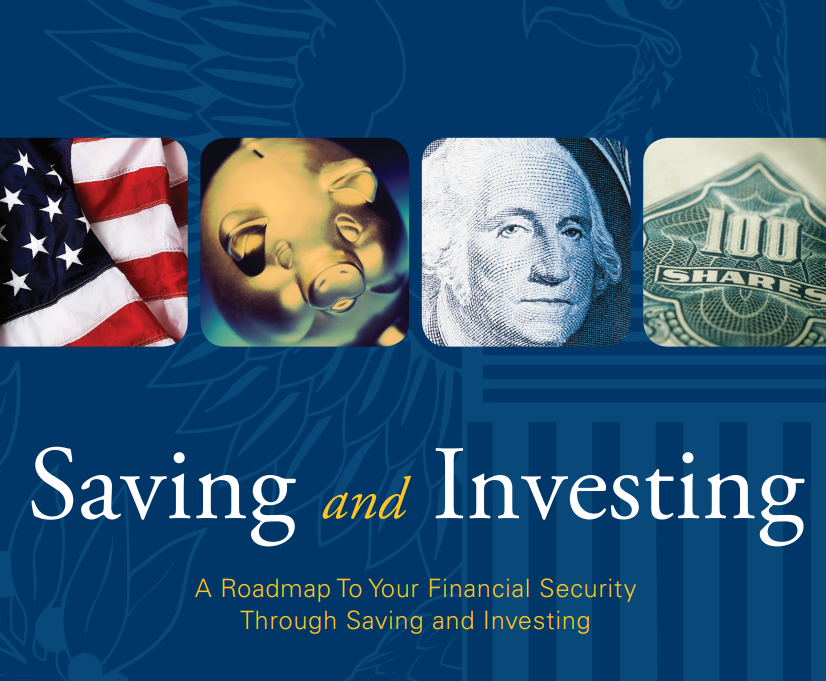
- Teacher: STJS Course

Course Introduction: Fraud Detection in Financial Transactions
Welcome to the Fraud Detection in Financial Transactions course! This course is designed to empower you with the knowledge and skills to understand, detect, and prevent fraudulent activities within financial systems. With the exponential growth of digital transactions, fraud detection has become more critical than ever for organizations to maintain security and trust.
Why Take This Course?
- Financial fraud is a growing global challenge, costing billions of dollars annually.
- Fraud detection combines domain knowledge, data science, and cutting-edge technologies like machine learning and artificial intelligence.
- This course equips professionals to proactively identify and mitigate risks, enhancing financial security.
What You Will Learn
-
Understanding Financial Fraud
- Types of fraud: Payment fraud, identity theft, money laundering, and more.
- Fraud lifecycle: Detection, prevention, investigation, and mitigation.
-
Data in Fraud Detection
- Importance of transaction data, customer profiles, and behavioral patterns.
- Challenges in working with unbalanced datasets.
-
Fraud Detection Techniques
- Traditional methods: Rule-based systems and statistical models.
- Modern approaches: Machine learning, deep learning, and anomaly detection.
-
Tools and Technologies
- Data processing tools (e.g., Python, R).
- Fraud detection systems (e.g., SAS Fraud Management, NICE Actimize).
-
Regulatory Compliance
- Legal frameworks: Anti-Money Laundering (AML) and Know Your Customer (KYC).
- Industry standards for fraud prevention.
-
Real-World Applications
- Case studies in banking, e-commerce, and digital payments.
- Building and deploying fraud detection systems.
Course Features
- Hands-on projects: Build a fraud detection model using real-world datasets.
- Interactive sessions: Participate in discussions, quizzes, and workshops.
- Industry insights: Learn from case studies and guest lectures by domain experts.
Who Should Enroll?
- Financial professionals seeking to enhance their risk management skills.
- Data scientists and analysts interested in fraud detection techniques.
- IT and cybersecurity specialists focused on financial systems.
- Entrepreneurs and business leaders aiming to safeguard their organizations.
Outcome
By the end of this course, you will:
- Gain expertise in identifying fraudulent patterns in financial transactions.
- Learn how to apply cutting-edge technologies to develop fraud detection solutions.
- Be well-versed in compliance standards to mitigate legal and reputational risks.
Get ready to dive into the world of fraud detection and build solutions that make financial systems safer and more reliable! 🌟
- Teacher: STJS Course

Course Introduction: Financial Modeling & Cryptocurrency
Welcome to the Financial Modeling & Cryptocurrency course! 🌟💹 This course bridges the gap between traditional financial analysis and the cutting-edge world of digital assets, equipping you with tools to navigate and model both conventional and crypto markets confidently.
What is Financial Modeling?
Financial modeling is the process of creating a mathematical representation of a company's financial performance to forecast future outcomes. It is a key skill in investment banking, equity research, and business decision-making.
What is Cryptocurrency?
Cryptocurrency is a digital or virtual currency that uses cryptography for security and operates on decentralized blockchain technology. Cryptos like Bitcoin and Ethereum are revolutionizing finance by enabling peer-to-peer transactions and innovative financial solutions.
Course Highlights
-
Introduction to Financial Modeling
- Understanding financial statements: Balance sheets, income statements, and cash flows.
- Building dynamic models for business valuation and investment decisions.
-
Advanced Excel for Financial Modeling
- Using Excel for sensitivity analysis, forecasting, and scenario planning.
- Creating dashboards and interactive financial tools.
-
Cryptocurrency Fundamentals
- Overview of blockchain technology and cryptocurrency mechanics.
- Key players: Bitcoin, Ethereum, and altcoins.
-
Crypto Valuation & Modeling
- Developing frameworks to evaluate cryptocurrency projects and tokens.
- Incorporating market trends, tokenomics, and blockchain adoption into financial models.
-
Risk Management & Regulation
- Identifying risks in traditional and crypto markets.
- Understanding global regulatory landscapes for cryptocurrency.
-
Case Studies & Real-World Applications
- Modeling scenarios for mergers, acquisitions, and crypto investments.
- Analyzing crypto trading strategies and DeFi (Decentralized Finance) projects.
Who is This Course For?
- Finance Professionals: Upgrade skills with cryptocurrency insights and advanced modeling techniques.
- Crypto Enthusiasts: Gain structured knowledge to analyze and invest in crypto markets.
- Students & Entrepreneurs: Learn practical tools to model and evaluate business opportunities in both traditional and digital finance.
Why This Course Matters
The convergence of financial modeling and cryptocurrency is reshaping global finance. By mastering these domains, you’ll gain the ability to analyze opportunities, assess risks, and contribute to innovation in both traditional businesses and the blockchain ecosystem.
Let’s embark on this transformative journey to become a financial and crypto-savvy professional! 🚀
- Teacher: STJS Course

Course Introduction: Corporate Finance
Welcome to the Corporate Finance course! 💼📊 This course is tailored to provide you with the essential skills and knowledge required to make informed financial decisions in the corporate world. Whether you aim to lead a company’s financial strategy or enhance your understanding of business finance, this course is your gateway to success.
What is Corporate Finance?
Corporate finance focuses on the financial activities that support the operations, growth, and strategic goals of a company. It involves managing resources, evaluating investments, and maximizing shareholder value while balancing risk and profitability.
Course Highlights
-
Introduction to Corporate Finance
- Key concepts: Capital structure, working capital, and financial statements.
- Role of corporate finance in business decision-making.
-
Financial Analysis and Planning
- Understanding balance sheets, income statements, and cash flow statements.
- Techniques for financial forecasting and budgeting.
-
Investment Decisions
- Capital budgeting: Evaluating projects using NPV, IRR, and payback period.
- Analyzing risk and return to make sound investment choices.
-
Financing Decisions
- Sources of capital: Debt vs. equity.
- Cost of capital and its impact on corporate strategy.
-
Corporate Valuation
- Methods to value a business: Discounted cash flow (DCF) and comparable analysis.
- Understanding mergers, acquisitions, and IPOs.
-
Risk Management
- Identifying and mitigating financial risks.
- Tools and strategies for hedging and financial stability.
Who is This Course For?
- Business Leaders: Enhance decision-making with financial insights.
- Aspiring Finance Professionals: Build a foundation for roles in corporate finance, investment banking, or consulting.
- Entrepreneurs: Learn to manage your business’s finances effectively.
- Teacher: STJS Course

Course Introduction: Global Financial Markets
Welcome to the Global Financial Markets course! 🌍📊 This course is designed to equip you with a solid understanding of the dynamic world of financial markets, their key players, instruments, and the forces that drive them.
What are Global Financial Markets?
Global financial markets are interconnected platforms where financial instruments like stocks, bonds, currencies, and commodities are traded. They form the backbone of the global economy, enabling capital flow, wealth creation, and risk management across borders.
Course Highlights
-
Introduction to Financial Markets
- Understanding financial systems and market structures.
- Key participants: Central banks, institutional investors, retail investors.
-
Market Instruments & Asset Classes
- Equity Markets: Stocks and indices.
- Debt Markets: Bonds and fixed-income securities.
- Forex Markets: Currency trading and exchange rates.
- Commodities Markets: Gold, oil, and other resources.
-
Market Dynamics and Influencers
- Role of supply, demand, and global events.
- Impact of monetary policies, interest rates, and geopolitical factors.
-
Investment Strategies and Risk Management
- Diversification and portfolio management.
- Tools to assess and mitigate financial risks.
-
Technology and Innovation in Finance
- Role of fintech, algorithmic trading, and blockchain in global markets.
- Emerging trends and their implications on market behavior.
-
Case Studies and Real-World Applications
- Analyzing global financial crises and market booms.
- Insights from successful investment strategies.
Who is This Course For?
- Aspiring Investors: Build foundational knowledge to start investing.
- Finance Professionals: Deepen understanding of global market operations.
- Students and Enthusiasts: Learn how global markets influence economies and individuals.
By the end of this course, you’ll have a comprehensive understanding of global financial markets and the skills to analyze, strategize, and navigate this ever-evolving domain. Let’s dive into the heart of global finance! 🌟
- Teacher: STJS Course

Course Introduction: Risk Management & Tools
Welcome to Risk Management & Tools, a dynamic course designed to empower individuals and organizations to identify, assess, and mitigate risks effectively using proven tools and strategies. 🚀
Why This Course Matters
In today’s unpredictable environment, understanding risk is critical for success—whether in business, finance, healthcare, or project management. Effective risk management helps minimize uncertainties, seize opportunities, and ensure sustainable growth.
What You’ll Learn:
- Foundations of Risk Management: Explore key concepts, types of risks (operational, financial, strategic, etc.), and their impact on decision-making.
- Risk Assessment Techniques: Learn methods like SWOT analysis, risk matrices, and quantitative/qualitative risk assessment.
- Tools for Risk Mitigation: Get hands-on experience with industry-standard tools, including:
- Risk Registers
- Monte Carlo Simulations
- Decision Trees
- Scenario Planning
- Software solutions (like Risk Management Information Systems - RMIS)
- Frameworks & Standards: Dive into ISO 31000, COSO ERM, and other global standards for risk management.
- Real-Life Applications: Analyze case studies to see how organizations mitigate risks in industries like finance, IT, and healthcare.
Who Should Take This Course?
This course is ideal for:
- Business leaders and managers
- Project managers and strategists
- Financial professionals
- Entrepreneurs and startup owners
- Students and professionals aspiring to master risk management skills
Our Approach
We combine interactive learning, case studies, and practical tools to ensure you can apply risk management strategies confidently in real-world scenarios.
By the end of this course, you will have a comprehensive understanding of risk management and the tools to make informed, risk-aware decisions that drive success! 🌟
Take control of uncertainties—join us and become a master of managing risks! 🔍
- Teacher: STJS Course

Course Introduction: Tax and Retirement Planning
Welcome to Tax and Retirement Planning, a comprehensive course designed to equip you with essential financial tools to secure a stress-free future! 🚀
Why This Course?
Understanding taxes and retirement planning is no longer optional—it’s a necessity for financial independence and long-term security. This course will bridge the gap between your current financial knowledge and actionable strategies for saving on taxes and preparing for retirement.
What You’ll Learn:
- Tax Fundamentals: Understand tax systems, deductions, credits, and ways to legally minimize your tax liabilities.
- Retirement Planning Essentials: Learn to set realistic goals, analyze retirement options (pensions, provident funds, and private savings), and ensure financial stability.
- Investment Strategies: Explore investment vehicles like mutual funds, annuities, NPS, and more to maximize your retirement corpus.
- Tax-Optimized Retirement Solutions: Discover tax-efficient retirement plans that work for YOU.
Who Should Join?
This course is perfect for:
- Young professionals looking to start early
- Mid-career individuals planning for a secure future
- Business owners and freelancers seeking tax and retirement clarity
- Anyone ready to take control of their financial future!
Our Approach
This course combines real-life examples, case studies, and interactive tools to simplify complex topics. By the end, you’ll walk away with a clear, actionable roadmap to reduce taxes and retire comfortably.
Join us on this transformative journey—plan smarter, save better, and enjoy your golden years without worry! 🌟
- Teacher: STJS Course

Welcome to the Budgeting, Saving, and Investing course! 🎉
Are you ready to take charge of your finances and build a secure, prosperous future? This course is your ultimate guide to mastering money management, empowering you with the tools and knowledge to make informed financial decisions.
What You’ll Learn
-
Budgeting Basics
- Understand the importance of creating a personal budget.
- Learn techniques to track income and expenses effectively.
- Build a flexible and realistic budget tailored to your needs.
-
The Power of Saving
- Explore strategies to build and maintain savings.
- Set achievable financial goals (short-term, medium-term, long-term).
- Learn how to establish an emergency fund and grow your wealth step by step.
-
Smart Investing
- Demystify investment options: stocks, bonds, mutual funds, ETFs, and more.
- Understand risk vs. reward and how to align investments with your goals.
- Learn about the magic of compounding and long-term growth.
Why This Course Matters
Financial literacy is the foundation of a stress-free life. With practical insights into budgeting, saving, and investing, you can:
- Take control of your financial destiny.
- Reduce financial stress.
- Achieve your dreams, from traveling the world to buying a home or planning for retirement.
Course Highlights
- Interactive Tools: Hands-on activities to create your own budget and savings plan.
- Real-Life Scenarios: Learn through case studies and relatable examples.
- Expert Tips: Insights from financial planners and investors.
- Actionable Takeaways: Practical advice you can implement immediately.
Who Should Take This Course?
This course is for everyone! Whether you’re just starting to earn, looking to save more, or curious about investing, there’s something here for you. No prior financial knowledge is required!
By the End of This Course, You Will:
- Have a clear understanding of your financial goals.
- Know how to create a budget that works for you.
- Be confident in your ability to save and invest wisely.
Let’s embark on this exciting financial journey together! 🚀
- Teacher: STJS Course